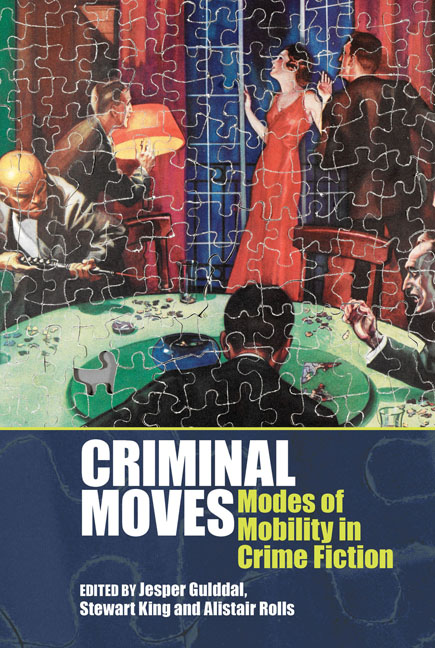2 - Moving Fergus Hume's The Mystery of a Hansom Cab and Breaking the Frame of Poe's ‘The Murders in the Rue Morgue’
Summary
In 2015 Australian crime fiction scholarship witnessed a double event. Two books, Stephen Knight's Secrets of Crime Fiction Classics and Lucy Sussex's Blockbuster! Fergus Hume and the Mystery of a Hansom Cab, were published with a common double motive: both wanted to give new voice to lesser-known, almost forgotten and, in some cases, underrated crime novels; and as a secondary aim, both aspired to harness this multiplicity of under-heard textual voices in order to drown out, or at least to Babelize, the dominant discourse of crime fiction's nineteenth-century origins, according to which the genre emerged in its recognizably modern form directly out of Edgar Allan Poe's self-styled tales of ratiocination, beginning with ‘The Murders in the Rue Morgue’. Knight (2015: 4) is at pains to relegate Poe to a place among the later pioneers and, to this end, privileges the important early roles of both French and American authors, including Eugène Vidocq, William Godwin and Charles Brockden Brown; for her part, Lucy Sussex, in a passage redolent of Maurizio Ascari's ‘refusal of any monogenetic account of the origin of literary genres’ (2007: 8), cites individual pioneers but places her emphasis on a rich literary mix:
Crime fiction has a creation myth: that it began with Poe, an immaculate genre conception with his 1841 short story ‘The Murders in the Rue Morgue’. Mythic indeed: crime fiction's origins in the late eighteenth and early nineteenth century were more polygenetic, with DNA coming from various sources, from legal reform to the development of policing and forensics. It arose from a stew of genres, where different forms of writing met and mingled promiscuously. (2015: 76)
At the heart of this myth of crime fiction's immaculate conception is the monolithic status of Poe's work itself. Against the Babelian promiscuity put forward by Sussex, Poe's tales of ratiocination seem to have spoken with one voice; indeed, the very term ‘tales of ratiocination’, despite the plural of the word ‘tales’, has come to embody the kind of univocity against which the Yale School of deconstruction simultaneously erected and pulled down its own (ivory and iconoclastic) Babelian towers (I am thinking especially here of Jacques Derrida's ‘Des Tours de Babel’ [cf. Derrida 1985: 209–48]). Rather than a receptacle or transmitter of diversity and miscegenation, Poe continues to be the rock on, and against, which crime fiction has grown up, reached out and become many.
- Type
- Chapter
- Information
- Criminal MovesModes of Mobility in Crime Fiction, pp. 45 - 59Publisher: Liverpool University PressPrint publication year: 2019

